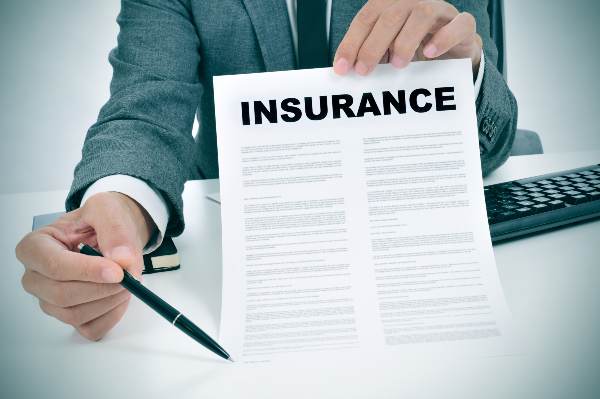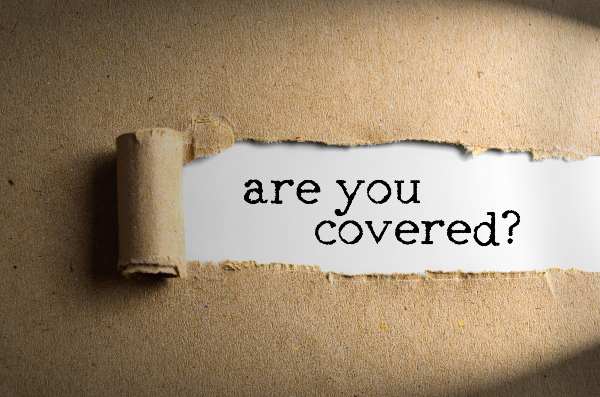Owning a business means assuming risks. If you don't take the necessary steps to protect yourself from these risks, you stand the chance of losing your business. This is where insurance companies and business insurance policies come in. Having an insurance policy means that you will have funds to cover losses and keep the business afloat in the event of any damage.
However, having an insurance policy doesn't always mean that your insurer will pay you when you bring a property damage claim. There are times when the insurance company would deny your claim. It is vital to know what your options are for a denied business insurance claim in such instances. An experienced commercial insurance claim lawyer at VG Law Group can help you if your insurance provider denies your claim.

Before we discuss what a business insurance claim is, we have first to explain business insurance. Simply put, it is insurance coverage taken out by a business owner to protect financial assets, intellectual property, and the business's physical location. The protection is from incidents that would result in significant financial losses.
Business insurance supports the insured business against thefts, vandalism, natural disasters, and defective product lawsuits. It also applies to loss of income, employee illness, workplace accidents, automobile accidents while performing work functions, injury, and death.
These incidents could result in major setbacks for your business. You could partially or completely close down the business in more severe instances. But with business insurance coverage, you can have your insurance company pay for the losses. You do this by initiating a claim.
So, what is a business insurance claim?
A business insurance claim is a formal notice sent to insurance companies after a loss.. The loss must be the type that entitles you to compensation. Once you file an insurance claim, the insurance provider is expected to gather evidence and investigate.. Once insurance advisers find that you are not making a frivolous insurance claim, they will pay you the amount stated in the insurance terms.
As a business owner, you need to consider your business needs and the impact any financial loss will have. You have to carefully assess the risks, the cost of repairs and weigh it against the premium you have to pay. By doing this, you will be prepared for any eventualities and have enough insurance coverage to cover losses.
In summary, you need an insurance plan to:
There are several insurance plans available to businesses. The policy coverage you go for depends on the industry you belong to, the business’s net worth and size, location, and the number of employees. Also, as your business grows, you might need to review your coverage limits.
Below, we have listed the different types of insurance plans available to businesses.
With this policy, you can pay for claims and any legal action arising from third-party bodily injury or property damage. It helps settle legal fees arising from lawsuits. Without this insurance policy, you will pay for legal expenses and damages by yourself. Find out more about the benefits of this policy from our insurance litigation lawyers.
This policy is one of the basic business insurance policies. It protects your business against loss or damage caused to third-party property. In this instance, your company would be the responsible party, and your insurance holder would settle the victim. This policy also applies to advertising injury.
If you are the owner of a commercial building or operate your business from one, you need property insurance. As a building owner, the policy protects the entire structure, covering things like roof repairs. If you are not an individual owner but a tenant, the property damage insurance plan will cover income loss and any improvement you made to the building.
There are several insurance denials for damages caused by a flood. This is why business insurance holders must take out a flood policy. It protects your building, business property, and products. It would pay for expenses like roof repairs and provide funds for another space while you restore your damaged property.
In the insurance industry, it is common to see commercial insurance policies that do not cover equipment. If you speak with an insurance broker, they would tell you it is vital to protect valuable and expensive equipment. After making an inventory list of your machinery, insure them in case they break down.

When they do, all you have to is present your repair estimates to the claims adjuster. Once the insurance agent authenticates your claim, they will pay for the repairs. Your business insurance carrier would also pay business income for downtime. Furthermore, the business insurance company would pay for other expenses caused by the equipment breakdown.
One of the basics of insurance policies is that your personal auto insurance coverage does not cover commercial vehicles. Your auto insurance provider would advise you to take out a separate policy. Thus, if you have a registered business vehicle, you must insure it. This policy coverage includes commercial liability coverage, uninsured motorist coverage, collision coverage, and comprehensive coverage.
In the state of Florida, if you have more than four employees, you must have workers’ compensation insurance. Workers’ compensation insurance covers all workplace injuries and illnesses and is a form of insurance injury claim. The policy pays for employee’s medical care and wages during recovery. This way, you will avoid legal action and the involvement of a personal injury attorney.
Claim denial is not uncommon in the insurance industry.. Denial of insurance claims happens for several reasons that are justifiable and won’t result in a bad faith insurance litigation.
Below are some of the reasons commercial business insurance providers deny claims.
To make valid claims on your contractor insurance policy, you must have enough coverage. Thus, if you own a commercial building with insufficient coverage, you can only claim the property’s average worth. It means that if you underinsure your property by 50%, the claims adjuster will pay you less than 50%. The only way to get your property’s real value and avoid underinsuring it is by speaking with your broker.
One thing that contributes to a claim dispute is out-of-date details. For this reason, you must notify your insurance broker of any changes to your business operation. For example, your workers’ compensation insurance covers only 20 employees. If you employ ten more, you must inform your business insurance carrier and submit the new staff’s names. If you fail to update your business information, it will lead to denial of coverage.
This is another common reason for a claim denial. You must inform your business insurance carrier of any previous claims. If you don’t, the claims adjuster can accuse you of withholding information and jeopardize the claims process. Similarly, if you are involved in insurance litigation, you must inform your insurance recovery lawyer of past claims.
If you consult a legal professional while preparing to buy insurance coverage, they would tell you to properly read the terms and conditions. This legal advice is indispensable, as failure to comply with the terms of an agreement can jeopardize your claim. For example, you stated during your quote estimate that you have an alarm system to minimize theft. If you fail to turn it on and get robbed, your business insurance company can deny your claim.
During the appraisal process, you must tell your insurance broker everything about your business and related activities. Don’t leave out anything, even the minutest detail. The disclosure must be clear and accessible and contain enough information to put the insurer on notice. If you fail to do this, you will find yourself in a claim dispute or a civil litigation insurance action.
Having looked at some of the reasons why insurance companies deny claims, let's look at your options after a denied claim.
The first thing to do after an insurance adjuster denies your claim is to prepare a response.. To do this, enlist the help of a law firm to review the claim denial letter. In it, you'll find the reason for the claim denial, and you can tailor your response to address the issue. Together with your insurance recovery lawyer, you can write an appeal letter, putting forth your best argument. At this point, you can also present any additional evidence you might have.
After filing a response and you fail to reach an agreement with your insurance provider, it's time for legal action. If the reason for the denial is false and frivolous, you can bring a bad-faith lawsuit against the insurance company. Bad faith insurance claims exist where the insurer fails to investigate, ignores evidence, or lies.. Note that not all lawsuits can come under bad faith. You can bring a tort claim and might be eligible for punitive damages.

If you made a business insurance claim, and your insurance company denied it, we can help. Our lawyers at VG Law Group have experience getting claims approved for our clients. If we end up in court, we will ensure the judgment is in your favor. Contact us today for a free case review.